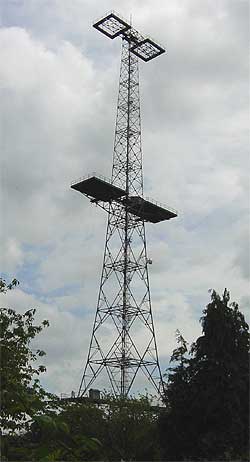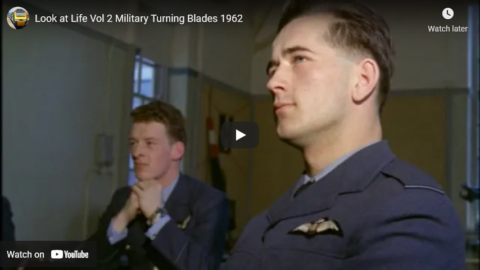In The Critic, Phillips O’Brien has a historical hot take on the popular view of the Battle of Britain:

The Chain Home Tower in Great Baddow Chelmsford, a key part of Britain’s air defence network.
Photo by Stuart166axe via Wikimedia Commons.
The Battle of Britain was a lopsided affair. One side was much stronger and more modern, with advanced integrated detection technologies, superior logistics and intelligence, excellent fighter control, and much better production facilities churning out far more of the most important equipment.
The other side was plucky, flying from considerably less developed facilities, operating under severe handicaps in intelligence and flying time over the battle area, lacking the proper technology to achieve anything like what it wanted, and with a severely underutilized industrial base.
The stronger side was Great Britain and the plucky underdogs were the Germans.
The Battle of Britain was always one that the Germans were bound to lose quickly and disastrously. The key phase only lasted a few weeks during which German losses became unsustainably high and the Luftwaffe had to resort to the completely ineffective, if dramatic seeming, night time bombing of London and other British cities.
When the Battle of Britain entered this Blitz stage in early September, it was an admission by the Germans that they could not fly in the day over the UK and survive, and therefore they had no chance of actually damaging anything meaningfully in the UK.
Unfortunately this realistic vision of the Battle of Britain makes for both bad movies and bad politics, and for that reason a different vision has come down to us — that of plucky little Britain, relying on “the few” to defend itself against the mass power of the Luftwaffe and Nazi Germany.
This myth — partly witting, partly not — started to be created even before the Battle of Britain actually reached its climax, and it became such a useful one that it has persisted to today. Winston Churchill’s famous speech that “never has so much been owed by so many to so few” was given on August 20, 1940, though the Battle of Britain did not reach its highpoint until the two weeks between August 24 and September 6.
In that sense Churchill’s stirring phrase was a prophecy not a proper analysis — and it was a prophecy based on a fundamental misunderstanding of how strong the Luftwaffe and Germany were at the time. Churchill thought the Luftwaffe was twice as strong as it really was and that Germany was producing twice as many aircraft as it actually was. He believed that Britain had to rely on the few. It just wasn’t true.
Britain won the Battle of Britain because it was more powerful than Nazi Germany in the key areas the battle tested and because Britain was not standing alone, but fighting with a world-wide network of assets that meant it was never going to lose.
The Germans had one advantage going into the battle — the number of aircraft on hand (though the numbers of deployable German fighters was only a little higher than that of the RAF). However even this numerical advantage was partly irrelevant as German bombers, small, slow two-engine machines such as the HE-111 and DO-17, were inadequate to the task and the famous Stuka dive-bombers, even slower and more primitive, were more dangerous for their crews to fly than they ever were to the British being bombed by them.
In response the RAF had radar, which could see the Germans coming and give the RAF time to prepare, could fly for far longer over the Battle areas from its bases in southern England than the Germans could fly from their bases in France, and could rescue the majority of its pilots show down while the Germans lost theirs that survived to British prisoner of war camps.







